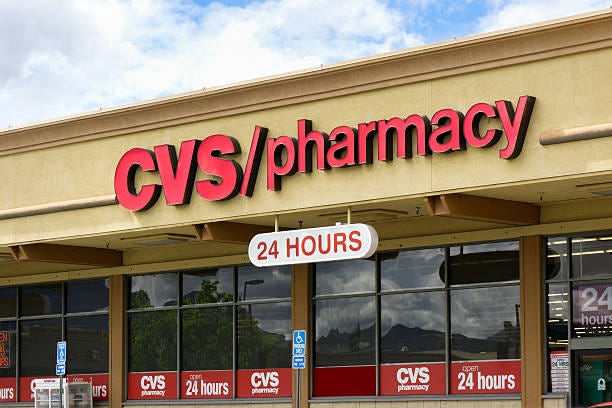
CVS Health cutting 5,000 jobs, changing focus to healthcare services
The cuts represent less than 2% of the company’s total workforce. These will affect “non-customer facing positions,” the company said in a statement.
unbranded – Newsworthy, unbranded – Newsworthy
Less than a week after a walkout disrupted the nation’s largest retail pharmacy chain – and after a flurry of memos, meetings and a written apology from a company president – CVS pharmacists plan another walkout today over working conditions they say imperil patient safety.
After shuttering as many as 22 stores in the Kansas City area last week, organizers had planned a repeat this week and asked other pharmacists across the nation to join them.
CVS executives scrambled to Kansas City over the weekend in an attempt to avert that scenario. They met with pharmacists and pharmacy staff at several metro area locations. Those talks culminated in a meeting with walkout organizers late Tuesday, both sides confirmed to USA TODAY.
Hours later, Prem Shah, CVS’ chief pharmacy officer and president of pharmacy and consumer wellness, issued a memo to Kansas City staff apologizing for failing to address their concerns sooner and promising a series of measures to alleviate their concerns.
“I want to apologize to our pharmacy teams that we haven’t addressed these concerns in the region more quickly,” Shah said, according to a copy of the memo obtained by USA TODAY.
“With the currently unprecedented demand for vaccinations from our patients in mind, we are taking a series of actions effective immediately,” Shah continued. Those steps included providing “additional resources” to stores, adjusting appointments, filling open positions and removing unnecessary tasks for pharmacists.
The memo, and an earlier one distributed to staffers, did not identify some of the specific requests made by the Kansas City pharmacists, who had asked for limits on the number of vaccines and scheduling changes, among other things.
It’s unclear how many CVS pharmacies will be affected by today’s anticipated walkout, either in Kansas City or elsewhere. The chain operates more than 9,000 locations nationwide.
The pharmacists’ walkout, and the corporation’s swift response, have brought fresh attention to years of alarms over pharmacist staffing and safety.
In national and state surveys, retail pharmacists working for large chains including CVS and Walgreens have complained that low staffing levels, combined with the rising pressure of corporate performance metrics, push a dwindling number of workers to handle an ever-increasing number of prescriptions, vaccinations and other tasks daily.
That, they say, increases the risk for a pharmacist’s primary role: making sure patients don’t receive the wrong drugs, or take medicines that have dangerous interactions.
“It’s been something that’s been building for a while,” said Ron Fitzwater, chief executive officer of the Missouri Pharmacy Association. “The understaffing and the poor working conditions – it all relates to the fact that the reimbursement levels have been so low that the demands handed to pharmacists, the metrics they have to live up to just to generate the dollars to keep staffing, is a never-ending cycle.”
Fitzwater said the industry has been suffering for more than a decade amid shrinking profits from drug sales. Pharmacies, he said, respond by slashing staff and trying to boost revenues through other means, like administering vaccinations.
“It has just devastated our industry,” said Amanda Applegate, interim executive director of the Kansas Pharmacist Association, which issued a statement on Monday in support of the pharmacists protesting unsafe working conditions.
The American Pharmacists Association issued a similar statement Tuesday evening, saying the “APhA stands with pharmacists in ensuring a safe patient care environment.”
“As pharmacists, we have a professional obligation … to consider the welfare of humanity and the relief of suffering as our primary concerns,” said the national organization, the only one that represents the entire pharmacy profession. “We further commit to advocating for changes that improve patient care. Pharmacists who find themselves in situations where the welfare of others is in question should always pause, evaluate the situation, and take the steps necessary to ensure safe, optimal patient care.”
Michael DeAngelis, CVS’ executive director of corporate communications, said an industry-wide shortage of pharmacists has made it difficult to appropriately staff the chain’s more than 9,000 pharmacies throughout the nation.
Exacerbating the stress caused by those shortages is a surging demand for immunizations, including flu and COVID-19 vaccinations, DeAngelis said.
Although the focus this week is on Kansas City, he said, CVS will address staffing and similar concerns “wherever additional help is needed” across the country.
“Every market is unique, and we’re looking across our markets and looking at the potential of adding similar support in areas where there is a need,” DeAngelis said.
Shah said in his memo that he will stay in Kansas City until its needs are met and will return each month until there’s a sustainable action plan for the region. He also urged pharmacists to have an open line of communication with the company and share their feedback with leaders.
“We encourage colleagues to report any viewpoints – anonymously if they choose,” he said in the memo, “without fear of retaliation.”
If you’re a retail pharmacist who would like to share your story with USA TODAY, please email elecoz@usatoday.com.

